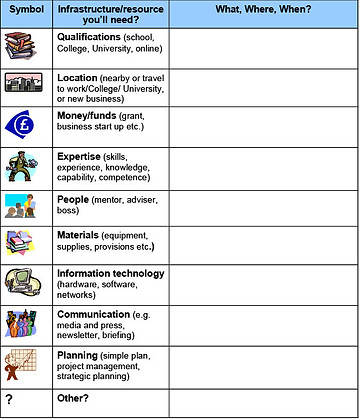I do not consent to generative AI systems scraping text or information from this site
Co-Director of Raparu Consult Community Interest Company
Visiting Professor at the University of Staffordshire and Honorary Professor of Keele University
Planning a healthy and successful life
Your tree ‘routes’ to success
This tree captures key headlining elements you need to be successful and should stimulate you to think out what actions and investments (eg in training/learning, time, effort, funds) and risks are worth you taking; to optimise the likelihood of you succeeding with your own dreams or goals, and building belief in yourself with a ‘can do’ approach.
Often you need to recognise the constraints which make it more difficult to achieve what you want to do:


Have a go at completing this plan for your future:
Life plan for you to become (and stay!!) more healthy
Stages in life planning
A. What are things like for you now?
B. What do you want to achieve?
C. How are you going to get there?
D. What will you do if you don’t get what you want or hope for?
A. Where are you now?
Consider:
-
Think about You
-
What are your strengths – skills, attitude, determination?
-
What are your weaknesses?
-
What fears do you have that you need to overcome?
-
What qualities do you have that you can exploit?
-
What are your goals for your lifestyle – say in 5 years, and 20 years?
Your reflections:
-
Think about your current situation
-
How satisfied are you with your job - working hours, responsibility, pay?
-
What aspects of your life do you value?
-
Have you any inner blocks that hinder you from leading a more healthy or worthwhile life (eg self-doubt, low self-esteem)?
-
What opportunities are there for you to develop new skills or get a new job or take on new roles?
-
Have you got enough support from others at home or work?
-
How satisfied are you with your lifestyle and time spent outside work or studying?
-
How much quality time do you spend with your friends and family members?
Your reflections:
B. What do you want to achieve?
-
Are you content to remain doing the same things each week? Or stay in the same job?
-
What makes you think about improving your lifestyle?
-
What is it that you most want to achieve? What are your career goals?
-
What strengths and skills do you want to expand to reach your goals or planned success – and by when?
-
How will you acquire those skills and get useful experience in the meantime?
Your reflections:
C. How are you going to get there?
Where do you want to be in ONE year’s time?
Looking inwards – at your strengths, skills, knowledge – capture your plans:
Looking outwards – engaging with key contacts, advisers, work opportunities – capture your plans:
Looking sideways – current opportunities – summarise your thoughts:
Where do you want to be in FIVE years’ time?
Looking inwards – at your strengths, skills, knowledge – capture your plans:
Looking outwards – engaging with key contacts, advisers, work opportunities – capture your plans:
Looking sideways – current opportunities– summarise your thoughts:
How are you going to get there?
Work out the series of steps you will need to take over the next twelve months to achieve your one year goals; and longer-term action for your three year or even five or fifteen year goals. Think how to make things happen for you. Who can you talk to and get more information or advice or support? Who can you visit to see if their type of work or lifestyle appeals to you? How can you gain the preliminary achievements and experience that you need to succeed with your hopes & plans?
Getting ready to make a change
What do you need to do first?
-
Discuss your options with others close to you - at home, your family and friends, work colleagues, trusted advisers.
-
Find out more about gaining new skills and experience.
-
Ask others for advice about opportunities.
-
Seek further health or careers advice or guidance.
Are you ready to change?
-
How positive are you about going ahead with your plan?
-
Does the life plan you’re proposing fit with your ethics, values and boundaries?
-
Can you overcome the barriers that have stopped you progressing your ideas and hopes in the past?
-
Are you clear about what motivates you to develop and expand your experience?
Complete the exercise on the next page to define the details of your realistic plan.
D. What will you do if you don’t get what you want or hope for?
Write down your contingency plans. For instance:
-
How could you change your current life so that you have more job or general satisfaction?
-
Re-evaluate your options. What is your ‘second choice’ alternative path?
-
What other skills might you develop at work or in your personal time?
-
Could you get a better work-life balance into your daily life?
-
Can anyone else help you – make some new contacts?
-
Counter any self-defeating beliefs – you can do it!
-
Need any help managing stress at work or from your personal life?
-
Build up your supporters – colleagues at work (or the boss!), friends, family, partner.
Make your realistic plan
Assess how ready you are to change your lifestyle, take forward your current career plan, create a new business or skill set - plot the resources you’ll need. Identify the gaps so you can begin to build an action plan to identify your resource needs to be successful.
